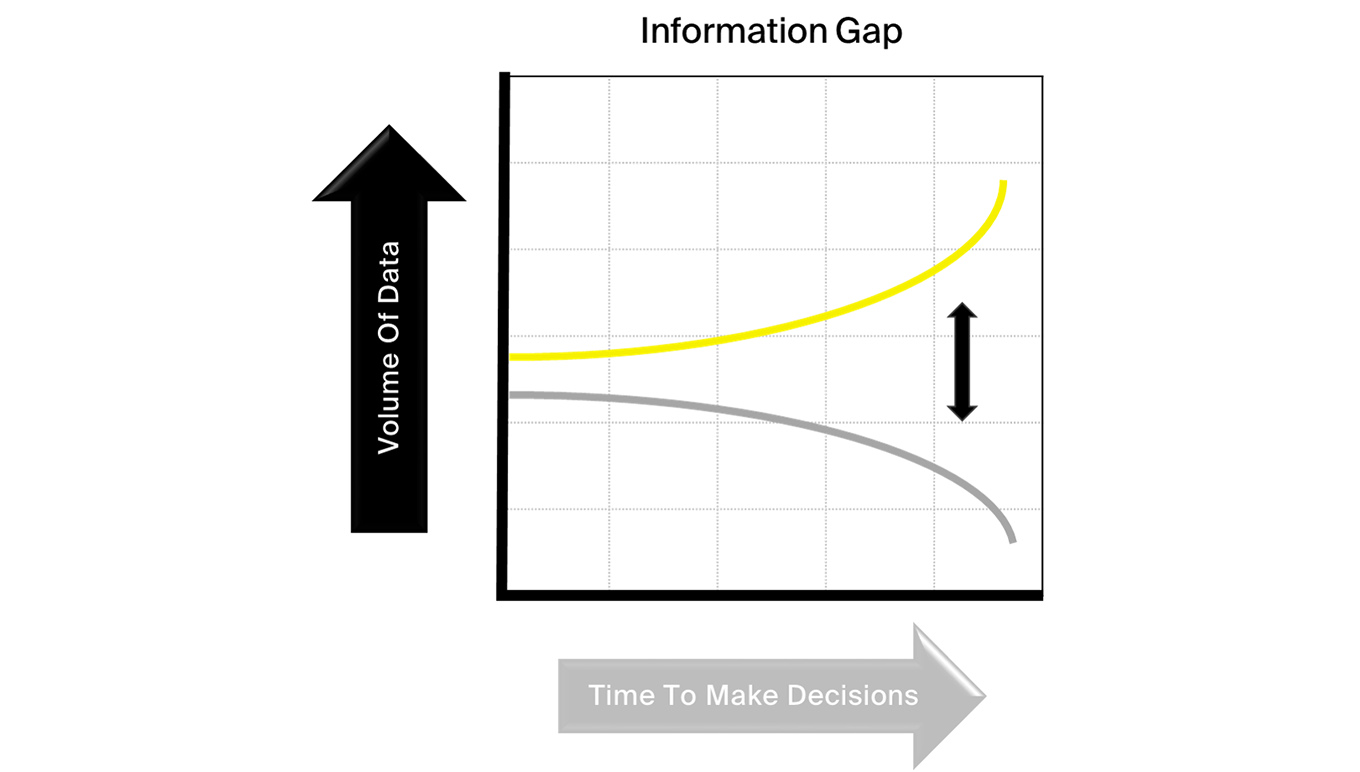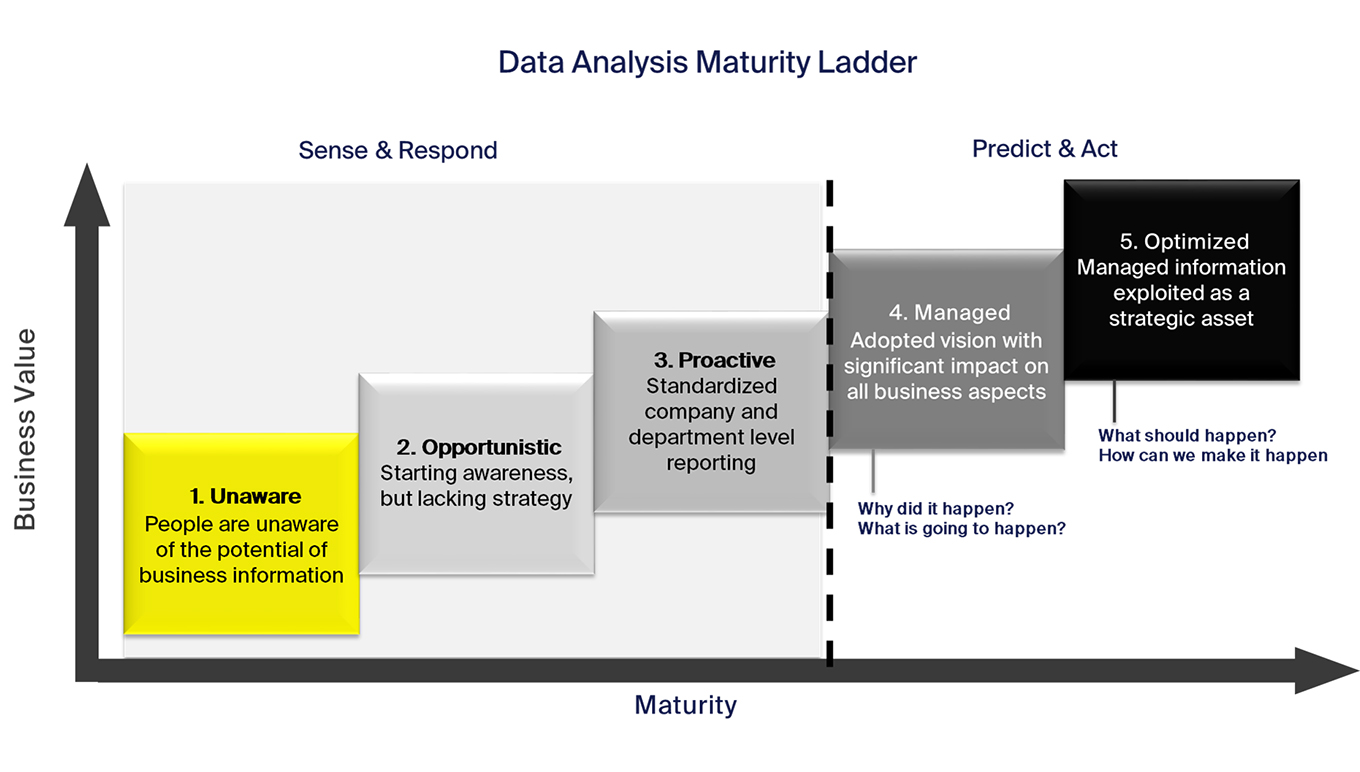Leveraging Complaints Data: Go Beyond Operational Reporting
Leveraging Complaints Data: Go Beyond Operational Reporting
Leveraging Complaints Data: Go Beyond Operational Reporting
Apr 20, 2022
 Eric Brown | Manager, Solutions Consultants
Eric Brown | Manager, Solutions Consultants
We really are in the midst of a data onslaught. With businesses faced with ever-increasing mountains of data on a daily, if not hourly basis, more organizations are struggling to harness the value of their data, running the risk of data overload. Nowhere is this more true than with complaints. It’s becoming ever more difficult to make sense of the data available, with more data to analyze meaning there’s actually less time available to act on the insight that can be derived from the very information that’s supposed to help the business. What we’re seeing is a rapidly widening information gap, where the time taken to make decisions gets longer as the amount of data to wade through increases.

What’s needed is a way to distill and refine the huge amounts of data available, helping you to leverage this valuable information, unlocking its potential for the benefit of your entire business.
Reporting Only Gets You So Far
It’s no longer enough to just report on your data, you need to push the boundaries of how you use it. We put a great deal of effort into capturing, storing, securing and reporting on our data, but where many of us fall short is when it comes to analyzing it. Reporting the headlines of ‘we resolved x number of complaints this week’ simply isn’t good enough anymore, with those businesses who do analyze their complaints data able to turn hard facts into actionable insight, underpinning continuous improvements, robust compliance and that all-important competitive advantage.
Data Analysis – Not If But When
For the complaints function, data analysis should no longer be a ‘nice to have’. Indeed, we’re seeing the introduction of regulatory requirements that almost mandate data analysis, with the Financial Conduct Authority’s (FCA) Consumer Duty demanding that firms demonstrate how they’ve leveraged their own data to understand if products and services are meeting the needs of their target market and customer base. In this instance, in-depth management information is needed to transparently demonstrate best practice, that fair and equitable outcomes are being provider for all customers, and justify complaint management actions regarding resolutions.
Aside from this, by exploiting complaints data to its full potential, you can use your own data as a valuable asset, guiding and informing not only your complaints strategy but your wider business strategy too. For example, the ability to model accurate what-if scenarios is only possible with the application of advanced analytics, helping to better prepare the business for all eventualities, something which we all appreciate the value of after the last two years.
We simply don’t do enough with our complaints data. Think of businesses such as Google and Meta, whose business propositions are based on taking the data we provide, analyzing it and monetizing it. For example, when you do a Google Search, ads are displayed that link to other websites. Google wondered whether a slight variation in color would have an impact on click-through rates. It ran a series of 1% experiments, showing 1% of the users a particular blue, another 1% a different blue and so on. Over 40 experiments were conducted and once the results were in and the data was analyzed, it was a purplish shade of blue that attracted the most clicks. Google used this data to drive its decision-making, resulting in an extra $200 million in revenue, all because of a simple color change.
One might argue that this business model doesn’t apply to complaints. But, when you consider that unlocking the potential of your complaints data is often the key to continuous improvements, which should increase customer loyalty and therefore profitability, then it’s clear to see just how valuable complaints data can be. However, this all depends on leveraging this data to its full extent, freeing complaints data from its complaints bubble and positioning it at the heart of the business to take its rightful place alongside other key management information to better understand customers’ needs, predilections and behaviors. This, in turn, can guide your strategy and key decisions, helping you to achieve your strategic priorities and your organization's overarching mission in the process.
Climbing the Maturity Ladder

To truly leverage complaints data takes a real commitment to change. It means going from the bottom rung of the maturity ladder, where you’re ‘unaware of the potential of business information’, stepping past rungs two and three, which represent the day-to-day reporting that the majority of businesses are already undertaking, and achieving data analysis nirvana, where ‘managed information is exploited as a strategic asset’. When it comes to data analysis, you really do need to take it to the next level, applying the same analytics tools and data science expertise that the business uses elsewhere to maximize the value that can be derived from your complaints data.
This transition from reporting to analysis will enable you to understand not only why things happened, but what will happen, with enhanced forecasting and predictive analytics unlocking the full potential of your complaints data. It’s the actionable insight that results from the right analysis that informs rapid, robust data-driven decision-making, not just in complaints but across the entire business.
Unlocking Your Data Potential
It’s time to go beyond complaints data being considered in isolation. Instead, complaints data should be released from the boundaries of the day-to-day reports generated by the complaints function and analyzed alongside business-wide information to form a core component of Business Intelligence (BI) activities. Organizations need to not just collate but curate complaints data, using it to its full strategic potential to underpin data-driven decision-making and informing continuous improvements, laying the foundations for a more agile, successful business.
Stay tuned for our next blog, where we’ll delve into some practical examples of how to use your complaints data, what else to consider to use your complaints data effectively and raise the topic of ethical data use.
To find out how our complaint management system, Aptean Respond, could help your business unlock its complaint management potential, contact us today.
The Heart of the UK Complaints Community
This eBook shares insights from the Complaints Coffee Club. A platform from the Collaboration Network, supported by Aptean, with the purpose of creating open dialogue within the UK complaints community.



